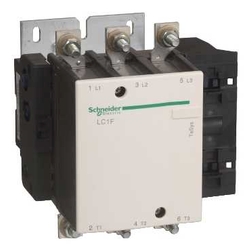
Schneider Schneider TeSys F - Contactors and reversing contactors up to 450 kW/400 V and 2100 A/AC1
2015-06-18 15:17:41
Description:
TeSys F - Contactors and reversing contactors up to 450 kW/400 V and 2100 A/AC1 Contactors and reversing contactors up to 450 kW/400 V and 2100 A/AC1……
New Products
Honeywell 51307038-100 Power Control Module Assy
Honeywell 51307038-100 Power Control Module Assy. Honeywell Experion LX Series 8 C300 controller provides powerful and robust control for the Experion LX platform.
Honeywell 8937-HN2 Fibre Optic converter IO Module
Honeywell 8937-HN2 Multi-Mode, Fibre Optic converter IO Module. The Fiber Option Extender modules support the extension of the I/O link beyond the Series 8 cabinet with the S8 C300, enabling remote applications of the Series 8 I/O.
Honeywell 8939-HN Multi-Mode Fiber Optic Extender (IOTA)
Honeywell 8939-HN Multi-Mode Fiber Optic Extender IOTA. The Fiber Option Extender modules support the extension of the I/O link beyond the Series 8 cabinet with the S8 C300, enabling remote applications of the Series 8 I/O.
G.M. International X1-IS-AO-02-S I.S. SIL2 HART® Isolating Driver module
G.M. International X1-IS-AO-02-S I.S. SIL2 HART® Isolating Driver module. GMI Intrinsically Safe Isolators, Analog Output
Assortments
Description
Contactors and reversing contactors:
All AC and DC control voltages 50/400 Hz
"Power" connection
Screw connectors
Flexibility by addition of additives
Fast, simple mounting together with TeSys GV7-R circuit breaker for motor starter solution
Safety of operation.
TeSys F AC3 range:
For motor applications up to 450 kW / 400V
Control of all types of motors in normal or severe service conditions
TeSys F AC1 range:
Wind turbines
UPS panels
Frequency drives and soft starters
Light distribution circuits
Induction furnaces
Etc.
For resistive applications up to 2100 A/AC1
For applications like:
Benefits
The possibilities of a powerful offer
TeSys F offers very high performance in AC3 and AC1 applications.
Combined with the LR9 electronic relay or GV7 motor circuit breaker, AC3 contactors are the ideal motor starters, offering quick, simple selection as well as shared accessories for greater flexibility.
TeSys F also includes a dedicated AC1 offer.
TeSys F contactors guarantee electrical coordination with fuses and Masterpact NW circuit breaker offers
Applications
Industry, infrastructure, building, renewable energies, etc.
Control of all types of motors in normal or severe service conditions
Control of resistive, inductive and capacitive circuits.
